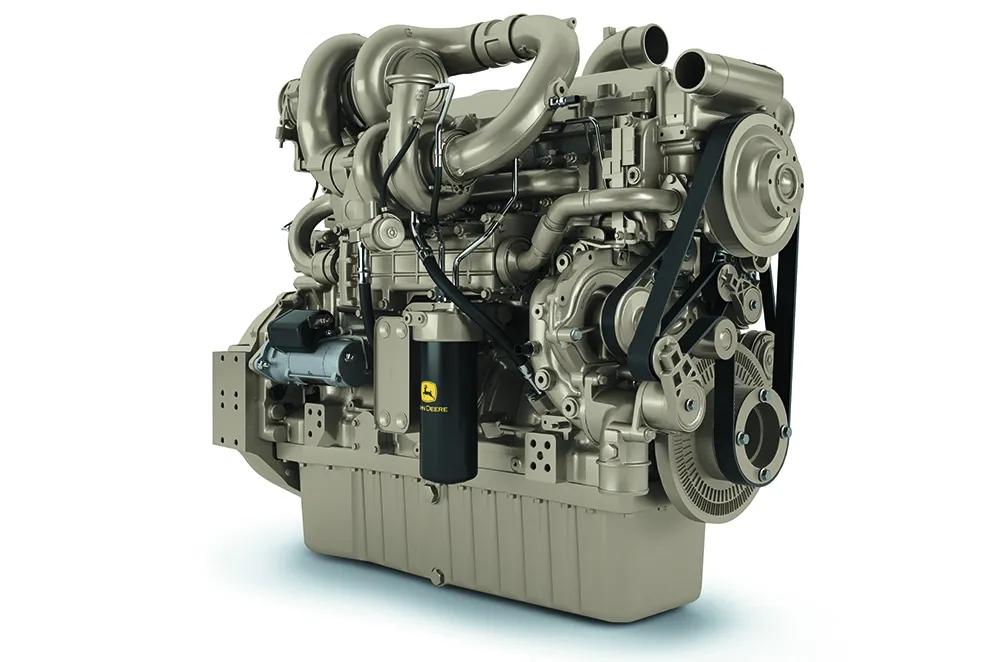A new report from IDTechEx Research highlights the value of electric vehicle range extenders. This business segment could be worth some $125 billion.
The new IDTechEx Research report “Range Extenders for Electric Vehicles 2015-2025” analyses and forecasts options and trends for range extenders in all applications. The report highlights that over $125 billion will be spent on this technology by 2025. Recent developments for the sector include specialist three cylinder engines and gas turbines as range ext
December 4, 2014
Read time: 2 mins
A new report from IDTechEx Research highlights the value of electric vehicle range extenders. This business segment could be worth some $125 billion.
The new IDTechEx Research report “Range Extenders for Electric Vehicles 2015-2025” analyses and forecasts options and trends for range extenders in all applications. The report highlights that over $125 billion will be spent on this technology by 2025. Recent developments for the sector include specialist three cylinder engines and gas turbines as range extenders. There have been numerous trials too of rotary combustion engines in aircraft and cars in Europe and Japan. Benefits include small size and relative freedom from vibration and noise. But there are disagreements as to whether the planned launch in 2015, by five motor manufacturers, of cars with fuel cell range extenders will prove a tipping point.
Chairman of IDTechEx, Dr Peter Harrop said, “The next 10 years will see many new technologies succeeding in this huge new market. Designers of land, water and airborne electric vehicles need to compare all the options, not follow the herd, and they must benchmark best practice wherever it occurs. By far the biggest demand will be for land vehicles, notably cars and with outdoor forklifts and buses also significant in number. However, the money spent and the profits made will involve many other sectors such as military and construction vehicles.”
He commented that, “At IDTechEx we work hard to reveal the full picture. We find that it is certainly not all about fuel cells taking over from piston engines. There will be plenty of hybrid vehicles made in 2025 with simplified, tiny piston engines. Free-piston engines, stuck in the laboratory for decades do look interesting, generating electricity directly. Rotary combustion engines will probably have a place but not be dominant. We see multi-fuel jet engines taking a minority share as efficiency and cost improve and some will be so small you will hold them in one hand. There will be many more range extenders sold as an optional extra, some being simply to get you home in an emergency and others for regular use. In short, 2025 will probably see no clear leader in range extender technology but power output mainly in the 10-40kW range and a clear leader emerging after 2025.”
The new IDTechEx Research report “Range Extenders for Electric Vehicles 2015-2025” analyses and forecasts options and trends for range extenders in all applications. The report highlights that over $125 billion will be spent on this technology by 2025. Recent developments for the sector include specialist three cylinder engines and gas turbines as range extenders. There have been numerous trials too of rotary combustion engines in aircraft and cars in Europe and Japan. Benefits include small size and relative freedom from vibration and noise. But there are disagreements as to whether the planned launch in 2015, by five motor manufacturers, of cars with fuel cell range extenders will prove a tipping point.
Chairman of IDTechEx, Dr Peter Harrop said, “The next 10 years will see many new technologies succeeding in this huge new market. Designers of land, water and airborne electric vehicles need to compare all the options, not follow the herd, and they must benchmark best practice wherever it occurs. By far the biggest demand will be for land vehicles, notably cars and with outdoor forklifts and buses also significant in number. However, the money spent and the profits made will involve many other sectors such as military and construction vehicles.”
He commented that, “At IDTechEx we work hard to reveal the full picture. We find that it is certainly not all about fuel cells taking over from piston engines. There will be plenty of hybrid vehicles made in 2025 with simplified, tiny piston engines. Free-piston engines, stuck in the laboratory for decades do look interesting, generating electricity directly. Rotary combustion engines will probably have a place but not be dominant. We see multi-fuel jet engines taking a minority share as efficiency and cost improve and some will be so small you will hold them in one hand. There will be many more range extenders sold as an optional extra, some being simply to get you home in an emergency and others for regular use. In short, 2025 will probably see no clear leader in range extender technology but power output mainly in the 10-40kW range and a clear leader emerging after 2025.”








